Unveiling the Pegasus Spiritual Meaning
Pegasus, the winged horse from Greek mythology, holds profound spiritual significance, representing freedom, inspiration, and the bridge between the physical and spiritual worlds. This article explores its rich symbolism, spiritual messages, and role as a guide for personal and creative growth.
Introduction to Pegasus
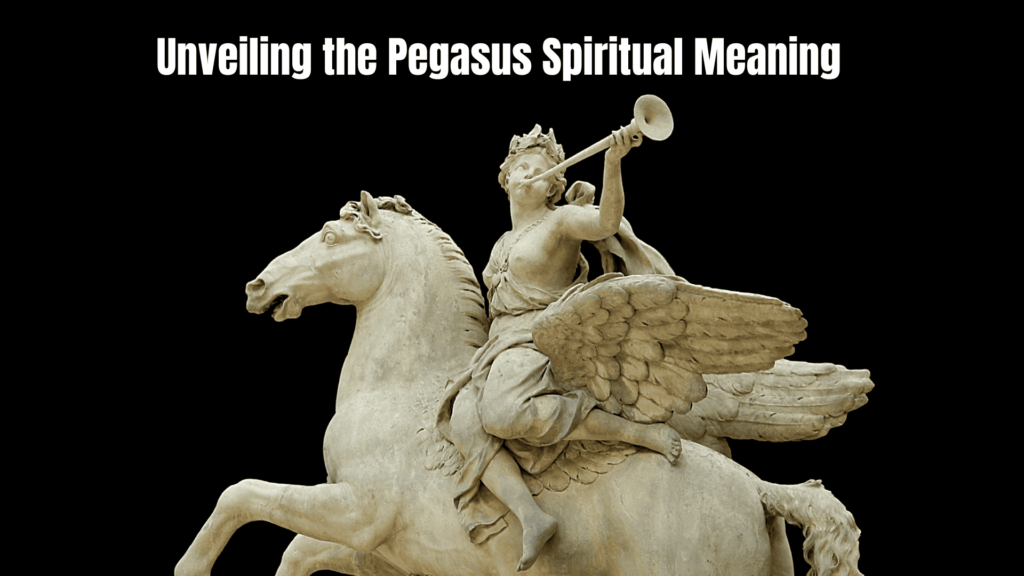
The mythological origins of Pegasus date back to ancient Greece, where this celestial creature was said to spring from the blood of Medusa after her defeat by Perseus. Pegasus has captivated the imagination of people across cultures, often symbolizing purity, power, and transcendence. Beyond myth, Pegasus is deeply embedded in spiritual teachings, serving as a metaphor for the human soul’s journey toward enlightenment.
Symbolism of Pegasus
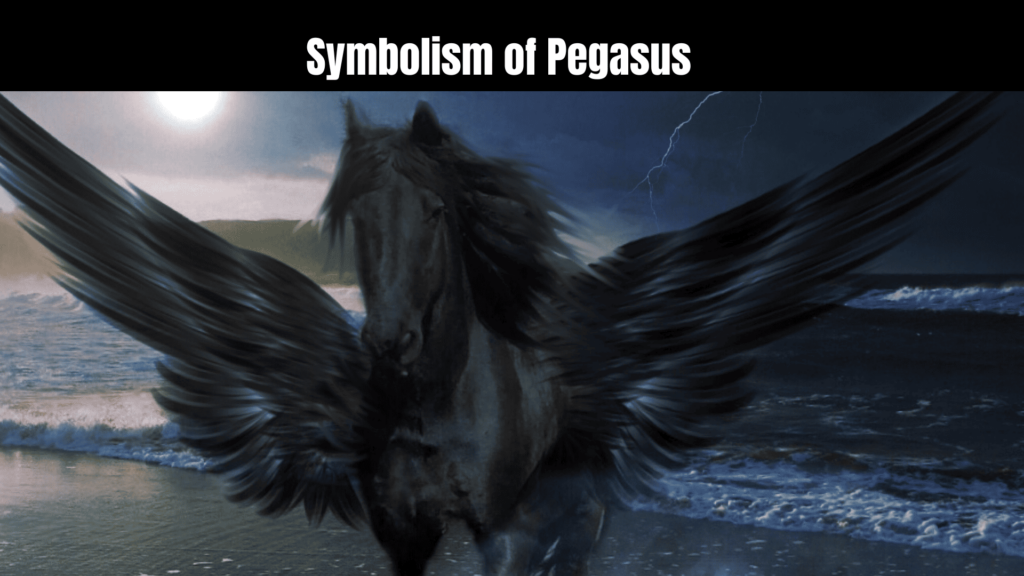
Pegasus, the legendary winged horse, carries profound symbolism that transcends its mythological roots, resonating deeply within the realms of spirituality, art, and personal growth. As a creature of both the physical and spiritual worlds, Pegasus embodies themes of freedom, inspiration, and transcendence, offering lessons that can guide individuals on their journey toward self-discovery and higher consciousness.
Pegasus as a Symbol of Freedom
One of the most prominent symbols associated with Pegasus is freedom. With its expansive wings, Pegasus represents the ability to rise above earthly limitations and explore uncharted realms. This freedom isn’t just physical; it’s also emotional and spiritual, encouraging individuals to break free from fear, doubt, and societal constraints. Pegasus serves as a reminder that true liberation comes from within, empowering us to trust in our own strength and vision.
Many spiritual teachings use Pegasus as a metaphor for the soul’s desire to transcend materialism and soar into the infinite possibilities of the universe. It inspires individuals to embrace their independence while staying grounded in their values.
Pegasus and Spiritual Power
Pegasus symbolizes spiritual power and the ability to harness divine energy. In mythology, Pegasus is often depicted as a creature with an otherworldly connection, serving as a bridge between humans and the gods. This spiritual association suggests that Pegasus is a source of strength and guidance for those seeking enlightenment.
By invoking the energy of Pegasus, individuals can tap into their inner reservoirs of courage and perseverance. It encourages us to face life’s challenges with grace and determination, reminding us that we have the ability to rise above adversity.
The Wings of Pegasus: Transcendence and Transformation
The wings of Pegasus are a powerful symbol of transcendence and transformation. They represent the human capacity to evolve, grow, and achieve higher states of being. In spiritual practices, wings are often associated with divine messengers or ascension, and Pegasus embodies this concept beautifully.
For those on a path of personal or spiritual growth, Pegasus serves as a beacon of hope and inspiration. It teaches us that transformation is not only possible but necessary for reaching our full potential. Just as Pegasus soars to the heavens, we too can rise above our limitations and embrace the infinite.
Pegasus as a Symbol of Grace and Beauty
Pegasus also symbolizes grace and beauty, qualities that are reflected in its majestic form and movement. This grace serves as a reminder to approach life with elegance and poise, even in the face of challenges. The beauty of Pegasus inspires creativity and encourages us to find beauty in the world around us and within ourselves.
Connection Between Pegasus and the Divine
In many spiritual traditions, Pegasus is seen as a divine emissary, carrying messages from the higher realms to humanity. This connection reinforces its role as a guide and protector, offering insight and clarity to those who seek its wisdom. By meditating on Pegasus, individuals can strengthen their connection to the divine and gain a deeper understanding of their life’s purpose.
Pegasus as a Bridge Between Realms
One of the most unique aspects of Pegasus is its dual nature, existing both on Earth and in the skies. This duality positions Pegasus as a bridge between the physical and spiritual realms, symbolizing the balance between the material and the ethereal. It reminds us that while we are grounded in the physical world, we are also spiritual beings with the potential to explore higher dimensions.
In this sense, Pegasus serves as a guide for those who are navigating the complexities of life, helping them balance their earthly responsibilities with their spiritual aspirations.
Personal Symbolism of Pegasus
On a personal level, Pegasus can represent an individual’s journey of self-discovery and empowerment. It encourages us to embrace our unique strengths and qualities, reminding us that we are capable of achieving greatness. Pegasus inspires us to take risks, pursue our dreams, and trust in our ability to overcome obstacles.
Pegasus in Greek Mythology
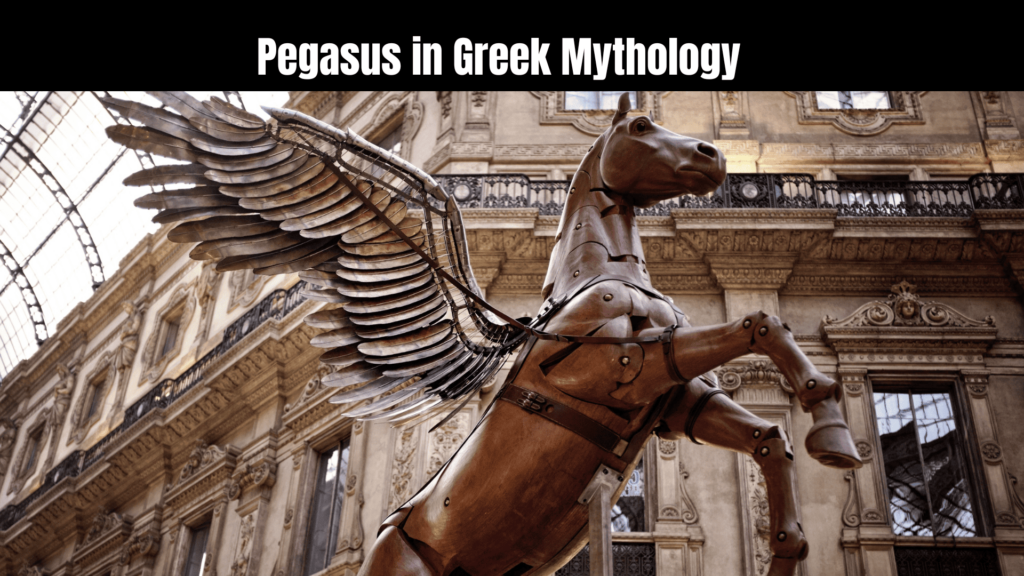
In Greek mythology, Pegasus is one of the most captivating and revered creatures, embodying both the mystery of the divine and the beauty of the mythical world. A winged horse born from the blood of Medusa, Pegasus has become a symbol of transcendence, freedom, and divine intervention. His story is woven into the fabric of ancient myths, where he plays a pivotal role in various legendary tales and continues to inspire spiritual and cultural symbolism today.
The Birth of Pegasus
Pegasus’s origin story is a dramatic and powerful one, tied to the myth of Medusa, the Gorgon. Medusa, once a beautiful woman, was transformed into a terrifying creature by the goddess Athena as punishment for being violated by Poseidon in her temple. Medusa’s gaze turned anyone who looked at her into stone, and she became a monster feared by all.
However, her death by the hero Perseus would bring about the miraculous birth of Pegasus. After Perseus beheaded Medusa, her blood mixed with the Earth, and from this potent mixture, Pegasus was born. This extraordinary birth symbolizes the idea of transformation, where from chaos, danger, or destruction comes something beautiful and powerful. Pegasus, with his wings and divine heritage, represents purity and transcendence emerging from a tragic origin.
Pegasus and Bellerophon
The most famous myth involving Pegasus centers around the hero Bellerophon, a mortal who tamed the wild winged horse. According to the myth, Bellerophon was chosen by the gods for a special task—defeating the monstrous Chimera, a creature with the head of a lion, the body of a goat, and the tail of a snake. However, Bellerophon was not able to defeat the Chimera alone. He needed the help of Pegasus.
Guided by the goddess Athena, Bellerophon was able to tame Pegasus by using a golden bridle, which allowed him to ride the creature. The pair then embarked on a series of heroic quests, most notably slaying the Chimera. Pegasus’s flight granted Bellerophon the ability to strike from the sky, defeating enemies and completing tasks that would have been impossible for a mere mortal to achieve.
The myth of Bellerophon and Pegasus highlights themes of divine favor, courage, and the idea of the hero’s journey. It also shows the importance of cooperation between the mortal and divine realms, with Pegasus representing both strength and divine guidance. Bellerophon’s eventual downfall—when he tried to fly to Mount Olympus and was cast down by Zeus—serves as a reminder of human hubris and the dangers of overreaching, even with divine aid.
The Role of Pegasus in Other Myths
In addition to his adventures with Bellerophon, Pegasus appears in various other myths, often symbolizing the connection between the earthly and divine. Pegasus is not only a mount for heroes but also a creature that embodies the eternal struggle between humanity and the gods. As a creature of the sky, Pegasus is closely associated with the gods and divine realms, carrying the weight of their power and authority.
In some versions of the myth, after his work with Bellerophon was complete, Pegasus flew to the heavens, where he was placed among the stars. This act of ascent symbolizes the ultimate union between the mortal and the divine, where Pegasus, through his heavenly flight, becomes a constellation. The constellation Pegasus, a large and recognizable grouping of stars, serves as a celestial reminder of the powerful role this mythical creature played in the ancient Greek imagination.
The Significance of Pegasus’s Wings
The wings of Pegasus are a central aspect of his symbolism, both in mythology and in spiritual teachings. They represent the ability to transcend the limitations of the earthly realm, enabling the creature to soar above the mundane and reach divine heights. These wings also serve as a symbol of freedom, suggesting that through spiritual awakening or personal transformation, one can break free from the chains of the material world.
The symbolism of wings is often linked to divine messengers in mythology, with creatures like Pegasus acting as intermediaries between the human world and the gods. In this sense, Pegasus represents not just physical flight but also the metaphorical flight of the soul—an ascension toward higher understanding and enlightenment.
Pegasus’s Legacy in Greek Culture
Pegasus’s influence on Greek culture extends beyond mythology. In ancient art, Pegasus was often depicted on pottery, sculptures, and coins, where he symbolized various virtues such as wisdom, strength, and freedom. The image of Pegasus is also found in poetry and literature, where he is invoked as a source of inspiration for poets and artists.
The presence of Pegasus in Greek culture speaks to the importance of mythology in shaping the values and beliefs of the ancient world. As a symbol of divine power and celestial grace, Pegasus served as a reminder of humanity’s connection to the divine and the aspirational qualities of the human spirit.
Pegasus and Transformation
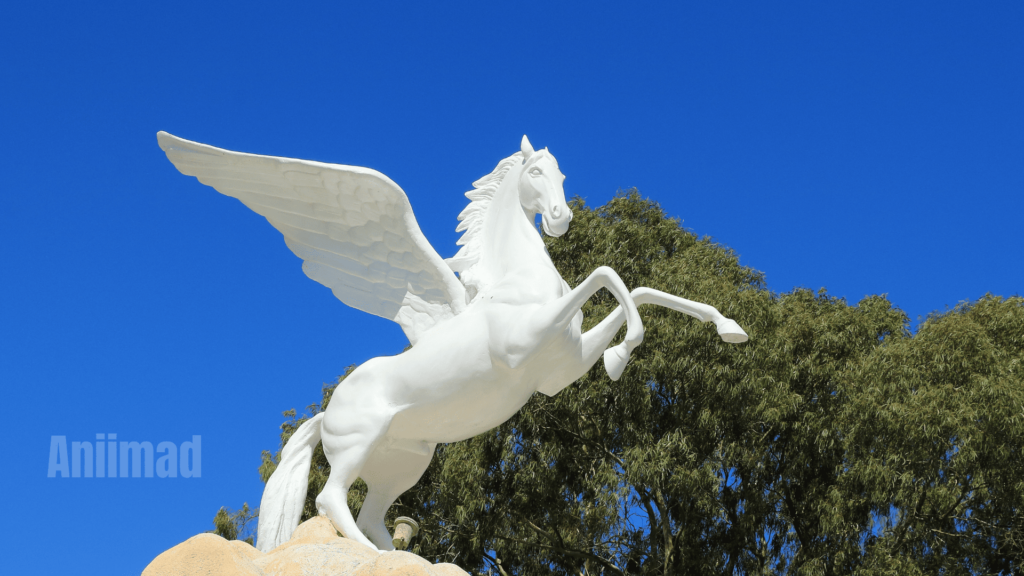
Transformation is a core theme in the story of Pegasus. From its miraculous birth to its legendary feats, Pegasus symbolizes the ability to overcome adversity and emerge stronger. Spiritually, Pegasus teaches us that growth often comes from challenges and that embracing change is essential for personal evolution.
By invoking the energy of Pegasus, individuals can find the strength to navigate difficult transitions and embrace their true selves. This transformation is not just physical but also spiritual, as Pegasus inspires individuals to rise above their circumstances and achieve greatness.
Pegasus and the Divine Pegasus and Transformation
The symbolism of Pegasus is deeply entwined with the theme of transformation, representing the power of change, growth, and transcendence. As a creature born from the blood of Medusa, Pegasus embodies the concept that beauty and strength can emerge from chaos and destruction. His story is one of evolution, both for the creature itself and for the people it touches, making him an enduring symbol of personal and spiritual transformation.
The Birth of Pegasus: Transformation from Chaos
The very birth of Pegasus is rooted in transformation. As the offspring of Medusa, a creature who was once a beautiful maiden transformed into a Gorgon, Pegasus’s emergence from Medusa’s blood symbolizes the alchemical process of change. Medusa’s tragic transformation and subsequent death give rise to something miraculous: Pegasus, a winged horse that represents the potential for change even in the most seemingly hopeless situations.
In a symbolic sense, Pegasus’s birth from chaos speaks to the possibility of growth and creation from destruction and adversity. It teaches us that even in the most difficult or painful experiences, there lies the potential for rebirth and renewal. This transformation is not just physical but deeply spiritual. Just as Pegasus emerges from Medusa’s blood, individuals can rise from their own struggles and limitations, emerging stronger and more enlightened.
Transformation in the Hero’s Journey
The myth of Bellerophon and Pegasus is another powerful example of transformation, not only for the hero Bellerophon but for Pegasus as well. When Bellerophon tames Pegasus with the help of a divine bridle, he is not only taking control of a powerful creature but also embarking on a journey of personal transformation. The winged horse becomes a catalyst for Bellerophon’s own growth, enabling him to conquer the Chimera and complete other seemingly impossible feats.
However, this transformation also teaches a lesson about the dangers of unchecked ambition. Bellerophon’s eventual downfall—his attempt to ride Pegasus to Mount Olympus, resulting in his tragic fall—is a reminder that transformation, while empowering, must be tempered with humility. It is only through balance that one can achieve lasting transformation. Pegasus’s role in this myth demonstrates that while transformation can lead to greatness, it also requires wisdom and an understanding of one’s place in the greater cosmic order.
Pegasus as a Symbol of Personal Growth
In the context of personal transformation, Pegasus represents the potential for growth that lies within each of us. The act of taming and riding a winged horse, as in the myth of Bellerophon, symbolizes the mastery of one’s inner power and the ability to rise above life’s challenges. Just as Pegasus allows its rider to soar above the earth, individuals are encouraged to transcend their limitations and rise to new heights in their spiritual and personal development.
The wings of Pegasus are particularly significant in this regard. Wings symbolize the freedom to move beyond one’s current state and explore new possibilities. The transformation that Pegasus undergoes, from a wild and untamable force to a divine companion of a hero, mirrors the potential for individuals to evolve into their higher selves. This process of transformation involves letting go of old habits, beliefs, and fears, and embracing a more enlightened path.
Transformation through Spiritual Awakening
Spiritually, Pegasus represents the journey of awakening. It embodies the idea that spiritual transformation requires a shift in consciousness—a move from the material to the spiritual, from the mundane to the divine. The act of riding Pegasus is symbolic of rising above the distractions and limitations of the material world to reach a state of higher awareness.
Many spiritual traditions use the image of Pegasus as a tool for meditation and visualization. By focusing on Pegasus, individuals can connect with the divine energy it represents and embark on their own transformative journey. The wings of Pegasus are often visualized as a means of ascension, carrying the meditator or seeker to a higher plane of understanding.
For those undergoing spiritual transformation, Pegasus offers an inspiring reminder that growth often comes from overcoming obstacles. Just as Pegasus emerged from Medusa’s blood, spiritual awakening often arises from hardship or struggle. Transformation requires perseverance, but with the right guidance and mindset, it leads to a deeper connection with the divine and a sense of liberation.
Pegasus and the Power of Change
Transformation through Pegasus is not only about personal or spiritual growth; it also speaks to the power of change in the broader sense. Pegasus is a symbol of the constant movement and change in the universe. As a creature that exists both on Earth and in the sky, Pegasus embodies the cyclical nature of life—birth, death, rebirth, and renewal.
This dynamic nature of Pegasus teaches us that change is inevitable and necessary for progress. Transformation requires letting go of the past and embracing the new, even when it is uncertain or unfamiliar. Just as Pegasus constantly shifts between realms—earth and sky, mortal and divine—individuals must learn to navigate the shifts and changes in their own lives with grace and flexibility.
The Role of Pegasus in Healing
In addition to personal and spiritual growth, Pegasus is also associated with healing and recovery. His transformative powers are not limited to physical feats of strength or heroism; they also extend to the emotional and psychological realms. Pegasus symbolizes the ability to heal from trauma, to recover from emotional pain, and to embrace the process of renewal.
This aspect of transformation through Pegasus can be particularly empowering for those going through periods of grief or struggle. By meditating on Pegasus or visualizing the creature’s wings, individuals can open themselves up to healing energies and embrace the potential for emotional and spiritual recovery. Just as Pegasus rises above challenges, we too can rise above our difficulties and emerge stronger and more resilient.
Pegasus and the Alchemical Process
Pegasus’s symbolism also aligns with the alchemical process of transformation. Alchemy, in both its literal and metaphorical sense, is about turning base metals into gold, symbolizing the spiritual process of turning the base parts of the self into something divine. In this regard, Pegasus can be seen as a representation of the philosopher’s stone, the mystical symbol of ultimate transformation and enlightenment.
In alchemical terms, Pegasus represents the soul’s ascent to the divine, where it sheds the limitations of the earthly body and moves into a higher, more enlightened state. This process of spiritual alchemy is often long and difficult, but like Pegasus, it offers the promise of great beauty, power, and freedom for those who are willing to undergo the transformation.
Pegasus and Dreams
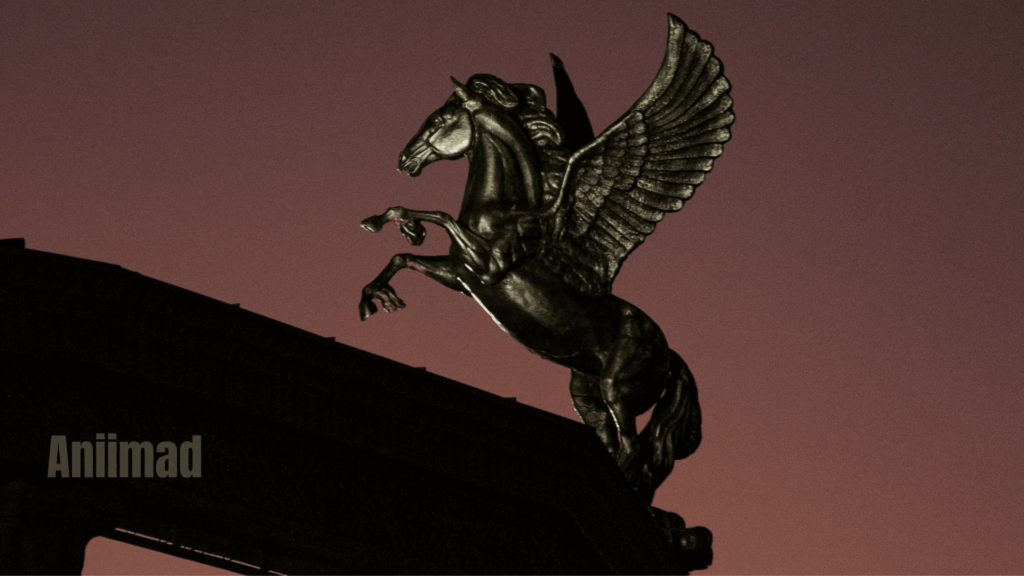
Pegasus, the winged horse of Greek mythology, holds a profound connection to the realm of dreams and the unconscious mind. As a symbol of freedom, transformation, and transcendence, Pegasus has long been associated with the act of flying—an experience often linked to dreaming. In both mythological and symbolic contexts, Pegasus offers powerful insights into the nature of dreams and their role in personal and spiritual growth.
The Winged Horse as a Dream Symbol
In dream interpretation, horses are often associated with strength, power, and the driving force of life. When combined with wings, as in the case of Pegasus, the symbolism expands to include freedom, spiritual elevation, and the potential to transcend earthly limitations. Dreaming of Pegasus can signify a yearning for liberation, an urge to break free from constraints, or a desire to soar to new heights in one’s personal or spiritual life.
A dream featuring Pegasus may suggest that the dreamer is on the brink of a transformation or breakthrough. The wings of Pegasus represent the ability to rise above challenges, whether emotional, psychological, or spiritual, and find solutions that were once out of reach. The act of flying in a dream, especially on the back of a powerful creature like Pegasus, indicates a journey toward higher consciousness, self-discovery, or an unexplored realm of potential.
Pegasus and the Freedom of Dreams
Pegasus is often considered a symbol of ultimate freedom. In the realm of dreams, freedom can manifest as the ability to explore new landscapes, escape from restrictions, or break away from limiting beliefs. Dreaming of Pegasus may represent the dreamer’s desire to liberate themselves from the confines of their waking life—whether those restrictions are emotional, mental, or physical.
In this context, Pegasus represents the unshackling of the spirit. The dream may be encouraging the dreamer to embrace their true desires and ambitions without fear of judgment or failure. The vast sky in a Pegasus dream could symbolize limitless possibilities, urging the dreamer to recognize the untapped potential within themselves and to pursue their passions and goals fearlessly.
Spiritual Dreams with Pegasus
Pegasus is not just a symbol of physical freedom but also spiritual transcendence. In dreams, Pegasus can act as a guide to higher states of consciousness or enlightenment. The wings of Pegasus represent the soul’s ascent, offering a reminder that the path to spiritual awakening involves liberation from material concerns and a connection to the divine.
When Pegasus appears in a dream, it may be signaling that the dreamer is ready to embark on a spiritual journey or awaken to deeper truths about themselves and the universe. This could involve shedding old patterns or limiting beliefs, elevating one’s perspective on life, or embracing a more holistic view of existence. Pegasus encourages the dreamer to rise above worldly distractions and seek a higher purpose or divine connection.
The Flight of Pegasus: A Metaphor for Personal Growth
Dreams of flying with Pegasus often symbolize personal growth and the development of one’s inner potential. The act of riding Pegasus is akin to stepping into one’s power and confidently navigating life’s challenges. The dream may be highlighting a period of self-discovery or transformation, where the dreamer is beginning to realize their own strength, resilience, and creative potential.
Flying with Pegasus can also be a representation of overcoming obstacles or gaining a new perspective. If the dreamer is soaring high in the dream, it may indicate that they are in a phase of life where they feel liberated, confident, and in control of their destiny. Alternatively, if the dream involves difficulty in flying or staying afloat, it may suggest that the dreamer is grappling with internal struggles that are holding them back from reaching their full potential.
The Healing Power of Pegasus in Dreams
Pegasus also carries associations with healing, particularly in terms of emotional and spiritual recovery. In dreams, Pegasus can serve as a symbol of renewal, offering comfort and guidance for those who are struggling with trauma, grief, or emotional pain. The creature’s wings represent the soothing power of transformation and the ability to rise above hardship, signaling that healing is not only possible but inevitable.
If the dreamer is struggling with personal issues or facing a difficult situation, dreaming of Pegasus may suggest that they are ready for a period of emotional healing and recovery. Just as Pegasus ascends to higher realms, the dreamer too is being urged to rise above their pain, find inner peace, and embrace a new phase of emotional and spiritual growth.
The Mythological Significance of Pegasus in Dreams
In mythology, Pegasus is a divine creature born from the blood of Medusa, a symbol of purity emerging from chaos. This aspect of Pegasus is particularly relevant to dreams, as it signifies the potential for beauty and power to emerge from tumultuous or difficult circumstances. Dreams featuring Pegasus can indicate that the dreamer is undergoing—or is about to undergo—a profound transformation, often resulting in personal empowerment and spiritual awakening.
The connection between Pegasus and the gods also speaks to the divine influence on the dreamer’s life. In Greek mythology, Pegasus served as a companion to heroes, helping them achieve great feats. In dreams, Pegasus may represent a divine or higher power guiding the dreamer through challenges and offering the tools needed to succeed in their journey.
Pegasus as a Dream Messenger
Given its connection to the divine and celestial realms, Pegasus in dreams can be seen as a messenger. Dreaming of Pegasus might be interpreted as receiving a message or insight from a higher source, whether that be the subconscious mind, the spiritual realm, or divine guidance. The appearance of Pegasus may signal a call to action, an invitation to elevate one’s thinking, or an encouragement to explore new aspects of one’s spiritual or creative potential.
In some cases, Pegasus may appear in dreams to provide clarity or answers to a problem the dreamer has been grappling with. The dreamer may find that the presence of Pegasus leads to newfound wisdom or a breakthrough, pointing them toward solutions or opportunities they had not previously considered.
What to Do When Pegasus Appears in a Dream
When Pegasus appears in your dreams, it is essential to reflect on the personal meanings and feelings associated with the dream. Consider the context of the dream: Were you flying freely, or did you face challenges? What emotions were present during the dream? These details can help uncover the specific transformation or freedom being symbolized by Pegasus in your life.
For example, if the dream was uplifting and exhilarating, it may be a sign that you are on the right path toward self-discovery and personal empowerment. Conversely, if the dream felt disorienting or overwhelming, it may suggest that you are experiencing resistance to transformation or change. In either case, Pegasus’s appearance is a powerful symbol of potential, urging the dreamer to take bold steps toward personal growth, spiritual awakening, or creative expression.
FAQs About Pegasus Spiritual Meaning
1. What does Pegasus symbolize spiritually?
Pegasus symbolizes freedom, inspiration, and the connection between the physical and spiritual realms.
2. How is Pegasus connected to freedom?
Its wings represent the ability to rise above challenges and embrace personal and spiritual liberation.
3. How can I meditate on Pegasus energy?
Visualize Pegasus in a serene setting and focus on its qualities of strength and grace to inspire inner peace and clarity.
4. What does seeing Pegasus in a dream mean?
It often signifies a desire for transformation, guidance, or overcoming obstacles.
5. Is Pegasus a symbol of divine guidance?
Yes, Pegasus is seen as a messenger of the divine, offering spiritual insights and support.
6. How is Pegasus represented in modern spirituality?
It is celebrated as a symbol of resilience, hope, and creative inspiration in various spiritual practices and artistic expressions.
Conclusion
The spiritual meaning of Pegasus is a profound and inspiring journey into the realms of freedom, transformation, and divine connection. By embracing the lessons and symbolism of Pegasus, we can unlock our true potential and soar to greater heights in our spiritual journey.
